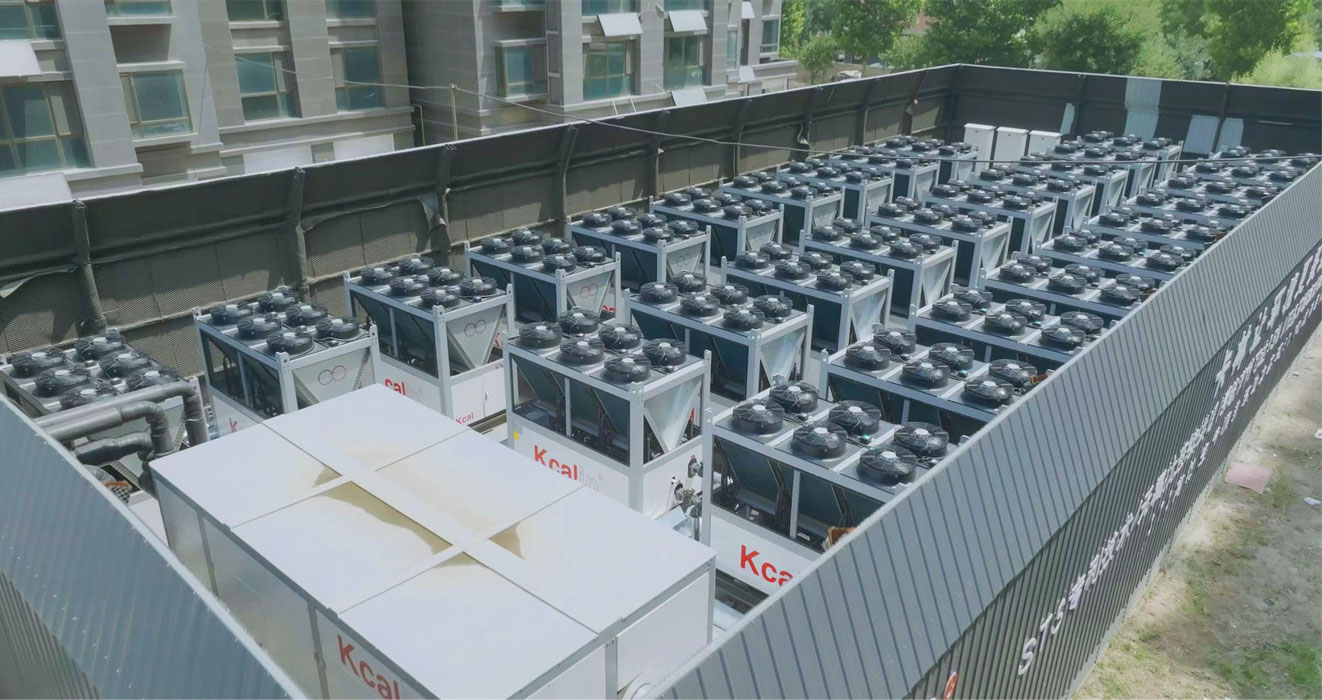Winter is approaching, and heating has become the focus of residents' lives. Among various heating methods, municipal centralized heating and self built air source heat pump heating stations in residential areas have become two popular choices. So, which heating method is better?
Municipal centralized heating: traditional advantages and limitations coexist
As the main heating method in northern China, municipal centralized heating has the following advantages:
Wide coverage: The municipal centralized heating system covers the entire city and provides heating services for a large number of residents.
Strong stability: Unified management, relatively stable heating time and temperature.
Easy maintenance: Heating facilities are maintained by professional personnel, and residents do not need to worry about repair issues.
However, municipal centralized heating also has certain limitations:

High energy consumption: Traditional coal-fired boiler heating methods have high energy consumption and cause certain pollution to the environment.
Inconvenient regulation: Residents are unable to independently adjust the heating temperature, which limits their comfort level.
Large initial investment: Municipal centralized heating requires the installation of a large number of pipelines, resulting in a relatively high initial investment.
In contrast, self built air source heat pump heating stations in residential areas have the following advantages:
Energy saving and environmental protection: Air source heat pumps utilize free heat energy in the air, with high energy efficiency, good energy-saving effect, and no pollutant emissions.
Strong flexibility: The community can adjust the heating time and temperature according to actual needs to meet personalized needs.
High return on investment: Although the initial investment is high, the operating cost is low, and in the long run, it has good economic benefits.
However, air source heat pump heating stations also have their shortcomings:
Affected by climate: The heating effect of air source heat pumps may be affected in extremely cold weather.
Space occupation: Heat pump equipment requires a certain amount of installation space and has certain requirements for the community site.
Municipal centralized heating and self built air source heat pump heating stations in residential areas each have their own advantages and disadvantages. In the current context of environmental protection and energy conservation, self built air source heat pump heating stations in residential areas have gradually become the new favorite of the heating market due to their green, efficient, and flexible characteristics. Of course, the specific choice of heating method still needs to be comprehensively considered based on factors such as the actual situation of the community and the needs of residents. But it cannot be denied that air source heat pump heating stations represent the trend of future heating development and will bring more comfortable and environmentally friendly heating experiences to Chinese residents.







Comment